.
.
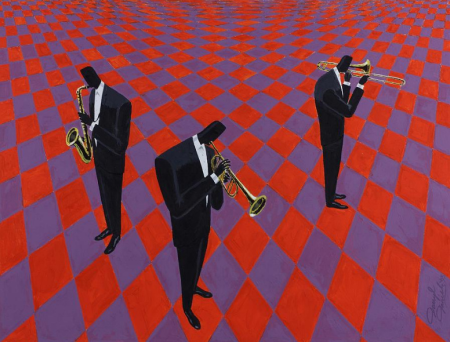
“Floorshow” is a painting by Darryl Daniels, a devotee of the figurative style of art. His jazz paintings are recognized worldwide, having been featured on television programs, commercial advertisements, film and recordings. With the artist’s consent, a selection of his jazz art appears in this collection.
To view more of Darryl’s artwork, click here
.
___
.
“It’s not exclusive, but inclusive, which is the whole spirit of jazz.”
-Herbie Hancock
.
And…this spirit is not limited to the musicians, because celebrating jazz is rich in creative opportunity for writers and visual artists as well. The 54 poets who contribute to this poetry collection are living proof of that.
As always, thanks to the poets, and I hope you enjoy…
Joe
.
.
At the conclusion of the poems, biographies of the poets and artists contributing to this collection are listed in the order in which their work appeared
.
.
___
.
.
A selection of recordings are available to listen to throughout the collection.
“The Pleasure is Mine“ is a 1963 recording by Herbie Hancock that includes Donald Byrd (trumpet), Grachan Moncur (trombone), Hank Mobley (tenor sax), Chuck Israels (bass), and Tony Williams (drums)
.
.
A Shock To The System
my heart is beating arrhythmic
art blakey pounding
earthquakes in my
chest
elvin jones is creating
seismic tremors
that measure 6.8 on the
richter scale
i sit in church as
buddy rich is doing a
drum roll in my
soul
it’s 2013 again and
i don’t mind another
heart attack if
gene krupa creates
tribal rhythms in my
arteries
i listen to the lord’s message
as philly joe jones
bashes the skins
……singing his groove with a
……rim shot
my heart has never been regular
i’m glad my heartbeat
is the song of
jazz
the love of music keeps
me here
.
by Erren Kelly
.
___
.
All Around The Moon
When I look up to the moon I can feel the Jazz—it’s easy to say why—
‘cause the more we are far from ourselves the less we feel.
The limpidity of my breath is rolling all around the moon and I can taste
the silent night of Jazz deep inside my calmness—when the scrap of my hope
is rolling all around the moon and I see the way out— it’s easy to say how—
‘cause much is demanded from us, but not much is forgiven to us.
The mystery of our wishes is rolling all around the moon and I can touch
the naked body of Jazz—it’s easy to say where—‘cause if we realize
by what means we want to distinguish ourselves, we will understand who
and what we are in reality. Yet, the silver silence is rolling all around
the moon and the architecture of sound beyond of that silver silence
domed the whole world when I can smell the lights of night with
its midnight sun deep in my heart and I can hear its voices, the echoes
from far beyond—it’s easy to explain—‘cause I feel my own presence
right here, right now, when I feel my presence right in your heart.
.
by David Dephy
.
___
.
Give Me That Old Time Religion
It has enough jazz
but no more—
and short lines
like the introduction to A Night in Tunisia
like one of Dizzy’s solos transcribed
or Bird’s
like Caesar
and Virgil
we had to learn in school
like
the old prophets
in the mills
in the factories
who created the Bible
on the spot
like a saxophone solo
one summer
when it was too hot to sleep
and all you could do was drink beer
even with a breeze
and asking if hell will be like that
drinking beer
with God
and hot
and jazz
it’s good enough for me
.
by John Stupp
.
___
.
The Dance
When I was a small girl
darkness lived in our home,
permeating each moment with
a relentless kind of dread.
On occasion music played
and dancing ensued as
light suddenly emerged in
all the corners.
Those were the times,
standing on his feet, twirling
swirling through the house,
as if dervishes had come to call,
that my heart burst with love for
the stranger in our midst.
He never stayed long.
Now, an old woman, I
recall the music, the dance,
the surprising joy of feet resting on feet,
small hands holding tightly
to the backs of his knees
as we danced into another world:
………A world where darkness had been
………infused by light, laughter,
………and the sound of the orchestra
playing on the record player.
.
by Judith Vaughn
.
___
.
Evocation
St Louis blues lingers.
Through those stretched summer nights
As the sun settles into the palm of evening
Cradling you with afterglow
Of everlasting timelessness
Echoing like Creole Love Call
Full gossamer of sound
Forever floating through the Jazz Age
Hauntingly poignant
Harmonious evocation
To invoke the soul
Layering past upon present
An ache you never want to end.
.
by Anthony Ward
.
___
.
Elegance of Simplicity
the ripple of a midnight breeze
beneath warmth of a golden moon
the whisper of keys softly stroked
by Bill Evans or Duke Ellington
a kind mother comforting her child
life explored sotto voce
every gesture or hint of sound
a kind of prayer
.
by Michael L. Newell
.
.
Coleman Hawkins’ landmark recording of Johnny Green’s “Body and Soul” is from 1939
.
.
She Cries Of Voice
she steps into
the music,
a beauty of
voice within
a voice
releasing
her signature
of jazz
melting into the
microphone,
as the
waters of
her storms
rush to the
surface
smoothing the
crowd into
silence
as her stiff
proud wings
and black
velvet shoes
push the clock
past midnight
.
by Roger Singer
.
___
.
Body & Soul
…………….(sung by Billie Holiday)
He said he wasn’t coming back
took the wind
that painted auras
in acrylic joy
lifted the essence of body & soul
left on filthy sheets
The gaslight lamp
used to stay on .. blinded her 24/7
A torch song
played on a broken record
grew tired .. lost its fire
yet couldn’t forget
This lady .. now free
sang the blues
on clean sheets—
although not her fault
wore the shame
of Lilith & Eve
.
by Patricia Carragon
.
___
.
Nina Simone
Almost sixty years
have passed yet
it could be today
she sings murder
oppression
protest in the streets
school children
sitting in jail
still a country full of lies
still Blacks die
Emmett Till to George Floyd,
still more and more
Blacks die
desegregation
do it slow
look for justice
go slow
call for equality
go slow
everybody knows
too slow
too slow
upset about
Alabama …Tennessee
could be any state
California …Wisconsin
and of course
everybody knows
Mississippi Goddam
.
by Phyllis Wax
.
___
.
Strange Fruit / Billie Holiday
June 4th, 1959, I turn thirteen…… Life is a harsh reality.
July 17th, 1959, Billie Holiday dies ……Life was a harsh reality.
She is unknown to me.
At twenty-one, awakening from the darkness of my own life,
I hear Billie Holiday’s voice on the radio, singing
like a bird, flying into the stratosphere.
I ride those wings with lightened heart and smiling lips
into a darkness beyond mine. Who knew? Who knew?
.Beauty shines even in the most painful times.
Years later, In New York, a friend tells me a women
at a Harlem jazz club sings like Billie Holiday.
I don’t, I can’t, believe him.
Cold winds blow, snow flurries rush
across the front of our yellow cab to Harlem.
We walk down stairs, ……another world. Sounds
waft up the stairs. A voice ……The channeled ghost
of Billie Holiday sings. The tremor of her voice,
the torment of her heart fills the smoky room;
The silence shatters from words sung of yesterday’s pain,
today’s anguish.
Black bodies swinging in the southern breeze.
Strange fruit hanging from the poplar trees,
gives voice to travesties burned, burned
into the collective memory of her people.
Sung words burn the flesh of the living,
leave charred souls to fly through history.
We sit at round tables, drinks in one hand,
cigarettes in the other; a smoky den of reverence.
Lady Day touches us beyond space beyond time:
a bird flying into the stratosphere.
Her voice a reminder that beauty shines
even in the most painful of times.
.
by Judith Vaughn
.
___
.
What Miles Did Next
….After Miles Davis (Does anything come after Miles Davis?)
Duende of the downbeat,
virtuoso Brigadier of Bebop,
fucked up Faust of the F sharp;
I man bitter.
Paris is burning and I am incendiary.
Bird and Dizzy, we three bitches shall meet again,
our hurly burly barely done.
Sequestered in a kennel full of black dogs,
dark at the end of my tunnel,
a livid mess, I am become my own anagram.
I am elemental, periodic truth,
in at the birth of the cruel.
In one more floor-mopped stack-chaired 3 a.m. bar,
way past my dreamtime,
they are sweeping up my blue notes,
my Rites of Passage.
.
by Isabel White
.
___
.
The Godhead
What he doesn’t have left to give, he’s giving.
…..wayward girls sing in time through clotheslines
…..of empty linens empty wombs and basins
What he’s not aware of are first names,
lines, page numbers, bills, directions,
and the notion of truth.
…..and you know me and you know me
He knows trains, and spitting on the tracks and Coltrane;
says he learned everything he knows
about living from a saxophone, and he can’t even play.
…..wayward girls do not need to worry
…..about giving life, they just preserve it
He can’t give and he doesn’t want to;
around him, one takes.
…..wayward girls float away like novels
…..when the deed is done
Once the door shows open to Rothko red,
the sheets are still clean,
and the notion of love is too dull for this room.
…..and you know me and you know me
…..When their beds are empty,
…..pillows with short dark hairs
…..embedded in white teeth
…..smell is what they have instead of children
Into a closed theater with tapestry seats we walk.
I notice the sound of anxious birds,
the gray tile border around the floor,
I count 1–2–3–
…..and you know me and you know me
This I can’t control.
.
by Milicent Borges Accardi
.
.
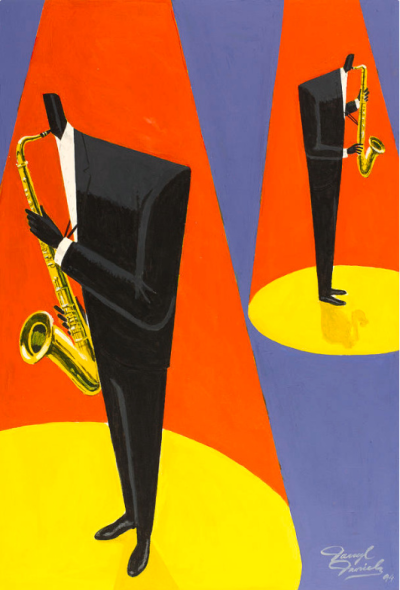
“Lightnotes,” by Darryl Daniels
.
.
Giant Steps
He showed me the answers just by playing them.
Coltrane on Monk
The opening track takes off in a run: an open heat
of veteran runners rising up into stride en masse.
The pace set at a brisk clip…the runners
a little tight in the arms, jockeying for position.
Pace picked up…Trane, the lead runner,
asserts himself, letting the group know how
the race will go…and the players fall in line;
Taylor, on drums, right there close behind,
knocking around in his peripheral vision, already
tuned into the leader’s moves, guessing fast
what might grow out of them, what little surprises
to prepare for…a rapid-fire tat-a-tat under feet
to spark the forward drive. Flanagan, on the piano,
creates a little distance from the pack, an amiable
space and pace to reside in…knowing the lead
will not long be his…just allowing the leader to take
a breath before the final turn…and there he is, Trane,
high kicking the group fast to the finish line. Race over.
.
by Sebastian Matthews
.
___
.
The Perfection Of Breathing
I had Trane on all day again.
As I opened my throat
to down a glass from the tap,
Trane made breath-taking
leaps over octaves.
While I flipped screens on the cell,
the long-haired gray cat warmed my lap.
Coltrane whispered note by note
to lift dust motes in a gyre
as they ginned up over a carpet
that needs to be replaced.
With Elvin Jones slapping snares,
“Ascension” brought me through
contractions of childbirth
while I spread mayo
at the counter by the fridge.
I was at the end of a broom handle
when Trane’s brass floated me
down one long, cool river.
I had to stop what I was doing
when his sax laid out phrase by phrase
how it would feel to no longer be in a body,
as eyes that used to be mine looked up
from a casket loved ones leaned over.
With the tip of a reed on his tongue,
Trane perfected his breathing.
.
by Ed Ruzicka
.
___
.
The Hampton Hawes Trio 1976
Finally, as it should be.
From my chair Shelly Manne’s drums are in
front of the shelf
where Buddha sits, except for some
high cymbals and bass drum accents
slightly to the right, inside the
computer room.
Hamp’s piano
is stretched across the wall
behind the T.V.
each note as clear as fresh blue water.
Ray Brown’s upright bass
walks the slats of the bathroom door
as if it was hinged with strings.
The speakers are invisible, as it should be.
A dialogue between three musicians
and a sound engineer with
perfectly balanced ears,
all passed and gone but reincarnated
to me in my living room,
forty years later.
As they should be.
Right, beautifully now!!
.
by Dan Brown
.
___
.
Watermelon Man
…………….(for Herbie Hancock & Kenneth Patchen)
Bacchus is behind the bar at 4th & Howard
mixing Manhattans, and lovely Margarita
is getting ready for her cabaret debut
all done up like the Moulin Rouge.
A couple of people are hanging around
because there’s no place else to go
and I’m listening to Watermelon Man,
Herbie Hancock’s piano eliciting
primitive paintings on the wall and
Dexter’s sax humming in the architecture
of our innocence like it’s 1962 again.
Great things doing in the Serengeti
someone says as Margarita rubs
legs with Sam under the table and the
setting sun is swallowed by shadow.
…………Someone else says,
Great things doing in Mozambique
as young Audrey, very much the gazelle,
does a bohemian dance to the jazz
as Bacchus pours us all another drink,
one more for the road.
And as though on signal, a cop comes in
flipping his ticket pad open and says,
Okay, who’s parked in the entrance again?
And then as the music ends, everything
goes back to the static of normal.
.
by DH Jenkins
.
___
.
Crazy Harry
Harry, crazy under a midnight moon, alone
on his patio, listens to the dolor bone deep
buried in the laments of Miles Davis
playing Sketches of Spain with admirable mastery
of the Harmon mute, breaking and bending notes,
letting the heart wail, the mind lost in time and space,
and Harry harmonizes, his raspy voice
provoking a neighborhood dog to howl.
When lights turn on nearby, and voices shout
epithets abusing the concert of Harry and the dog,
Harry wanders inside and dives into some red wine.
He turns the music down and eventually sleeps,
tears on his cheeks, wine on his breath, and dreams
that he composes a symphony of oceanic size, all grief,
that he sings with many voices to passing dolphins as he stands
on a deserted seashore amid crashing waves and circling seabirds.
.
by Michael L. Newell
.
___
.
A Most Ill Fitting Suit
It was like it wanted no part
of the rotund trumpeter
who purposely pulled it from its hanger
from where? Barney’s? Syms?
Macy’s Basement?
And chose to wear it
on this night on this stage.
It struggled to break free
from this portly player:
Crinkled, leadened, almost pallid.
It just didn’t fit and everyone in the house
knew it. How could they not in the spotlight
as it were: The ballad smooth, elegiac.
The suit? Not so much. Even the trumpet
was like Dude, lose the garb.
The tailor never meant it to fit this way:
Ungraceful as deflation. Baggy, inchoate
and so shiny too!
Even in the dark of a saxophone solo
this suit is really bad.
Like a latter day Van Morrison
flailing in a Brooks Brothers cut.
The sleeves are too long and if
the cuffs had fingers they’d be gloves
on his pudgy claw.
It doesn’t help that he’s hasslin’
w/his valves all night and
his pants don’t fit either.
Un-ironed, unhip, uncouth.
Bunching at the knees and the ankles
like a lawless coat of indeterminate color
and shiny like the jacket but not a suit.
Two pieces of attire never attended.
Never intended to compliment or complete
on this night, on this stage
in New York, New York.
.
by Mike Jurkovic
.
.
“Violets For Your Furs” is a 1957 recording by John Coltrane (tenor sax), and includes Red Garland (piano), Paul Chambers (bass) and Albert “Tootie” Heath (drums)
.
.
Born Too Late
Another moon
big as a bass drum
bounded by bells of muted trumpets.
Another band
of silent musicians
below whom I walk the dog,
snap my fingers.
Measure the sphere.
Wait for the stars to leap in.
.
by Barry Peters
.
___
.
Reflections Of Jazz At The Hollywood Bowl
Start off whispery
Soft patters on the drums
Hot jazz is the weather
Picks up momentum
To slaps on the leather
Scat-scatting vibes
Coming at us from all sides
To stretch out a refrain long and lean
“Why do you have to be so mean?”
African rituals
Bounce me off my seat
Hands together I’m on my feet
All of us together, we’re swaying to the beat
Violins slide along
Until a trombone coaxes them home
Ping-ping guitar
Skips a beat
Then picks up another
A chattery rhythm
Only Latino’s know
Wrap around the code from Mexico
Born of castanets
Sailed to Cuba’s Bay
Picked up guitars and drums
Along the way
Climbed over Trump’s fence
and settled in L.A.
Held aloft by kindred spirits
Choruses fall from the skies
Dancing on the minor chords
To be picked up by a lonely horn
Dropping low
Taking you back
To before you were born
Backbeats
Swaying and shagging
Let’s skip across the stage
One note at a time
Climb, climb, climb
“One, two, three
I’m lost to myself
Come, please and find me”
.
by Susandale
.
___
.
For John Coltrane
As over and over the same chords churn
your notes pour forth in spate –
sheets of sound erupting till harmony
is wrenched awry; and when you sweated
smack to cleanse your system,
you were hell-bent on an afterlife,
a body refreshed, believing.
You could call it Love, but sombre,
that force that drives you on.
Hearing you now, I feel reproved
for all the ways I lose my time –
books unread, the work I’ve left undone.
But your gift is a Fury;
it’s like a disease,
the craving that makes you blow.
So who counts up the cost in pain –
the candy bars and cokes consumed,
your aching teeth clamped in the embouchure?
.
by David Cooke
.
___
.
A Love Supreme
He trudged upstairs to pray for days.
Descended in rapture, armed with a four-part suite.
John Coltrane’s saxophone blares “Acknowledgement.”
He chants to McCoy Tyner’s cues.
“Resolution” swings and screeches:
agape lives and matters.
Elvin Jones on tympani amplifies the faith.
In an Afro-Cuban beat, “Pursuance” embraces grace.
‘Trane gives fellow travelers a bonus track:
poetry of gratitude played out in the notes of “Psalm.”
Sanctified sounds from the ‘65 vinyl poured from windows
on spring nights in “The Haight.”
Plethora of gifts from a man and his horn.
Turning water into wine. Parched listeners sated.
.
by Amy Barone
.
___
.
the believer
………….i.m. mccoy tyner
bare hands re-
cast the bells
…………………………………………africa iron
…………………………………………& brass
manacles & chains
brushed aside
…………………………………………fingers &
…………………………………………thumbs
grain of the past
braille from the future
…………………………………………pulse you
…………………………………………made
stronger than
ever
.
by Sean Howard
.
___
.
When Charlie “Bird” Parker Plays
The impossible trill
of triplets and quintuplets
explodes upward
seeding the smoky air
with up-tempo beats
that rain down
in free-flowing rhythms
a deluge of rhapsody
drenching all
in baptismal arias
raising shouts
AMEN!
HALLELUJAH!
stirring the unconverted
to confess, seek salvation
compelled by the power
of “Bird’s” impromptu cadenza.
.
by Antoinette Winstead
.
.
In a recording made in France in 1963, Sonny Criss plays Sonny Burke’s composition “Black Coffee.” It features Michel Gaudry, Philippe Combelle, and Henri Renaud
.
.
Hours In The Kitchen
….(from a dyed-in-the-wool cook & jazz devotee)
Hours in the kitchen
Are as rich in
…………………….creativity
As playing jazz,
Which in
Phases of the day’s activity
Call for phrasing, bits of glazing,
Playing lazily
As ideas come to me.
Hours in the kitchen,
Composition, intuition
Putting foods, spice, salt and pepper
Deeply felt, (or smelt) together.
Just as you can’t beat a sweet dessert,
You cannot beat the beat of drum, bass, keyboard,
Swinging singer, a great tune:
“How High the Moon”, for instance.
Every cadence as a chance to dance.
So it is when one is ‘hot’,
Every substance in the pot
Exactly like the marrying of note
When note floats out without a shout,
Without a sting inside the throat,
But satisfies the whole of one;
Wholly freed from doubt when done.
Ah, those hours in the kitchen;
Very Ella great Fitzgerald fun.
.
by Arlene Corwin
.
___
.
A Cup Of Koko Taylor
I’m a woman, deep in a blues haze
All he does is cheat and plays
I can make love all night, long as
I’m treated right, but I can fight
Shook hands with the devil
Making me just a little evil
he’ll be wrestling a crocodile
and me wearing the smile
See here, I ain’t no voodoo woman
no rabbit’s foot in my pocket or crawfish
on my shoulder, born under a bad sign
when he left I wanted to go blind
I been crying since last Friday night
I know everything gonna be alright
Going to where the juke joint jumps
see who I’ll catch when I shake my rump
.
by Aurora M. Lewis
.
___
.
Alphabet
I live in a harbor on the Mediterranean coast,
where the first human alphabet was born,
where the first musical note was composed,
yet my father had an alphabet of his own,
which he taught to me when I was five years old.
A is an African art that reinvented itself on American soil.
B is Black that enchants the entire globe.
C is the cello that addresses our souls.
D is the drums that regulate our pulses and throbs.
E is energy; F is a jazz flute.
G is an electric guitar that electrifies and enthralls.
H is the harmony that music bequeathes to all.
I is the improvisation of melodic forms.
J is the Jazz that the pores of our household exude.
K is a knighthood of musical chords.
L is Louis Armstrong’s Wonderful World.
M is a mellow mood.
N is a nest on Music’s throne.
O is the lyrical oboe.
P is the piano whose keys no emotions withhold.
Q is a quest for inner warmth.
R is the rhythm that started with Papa Was a Rolling Stone.
S is the saxophone that my father proudly owns.
T is the trumpet that he daily enfolds.
U is unanimity at work.
V is vitality and the spirited voice.
W is the warbling of many sung words.
X is a jazzy xylophone.
Y is music-born youth.
Z is the zeal for original songs.
.
by Susie Gharib
.
___
.
Sweet Jazz O’ Mine
Drums First
Clarinet Lick
Guitar Vibes
Alto-it is, Bongo
Trane Whistle, Hornin’ In
Boy Meets Horn, Adam Blew His Hat
Accordion Joe, I Love A Piano
Braggin’ In Brass
Bugle Call Rag, Conga Brava
Fiddler on the Diddle
Guitar Amour, One Bass Hit
Trombone Blues
Tootin’ Through the Roof
Trumpets in Spades
Yackety Sax
Clarinet Lament
Fiddle Blues
Love is Like a Violin, Pullin’ Strings
Inner Rhythm, Heartstrings
You’ll Have to Swing It
Sing It Way Down Low
Now You Has Jazz
.
by Gloria Krolak
.
___
.
Jam Song
man oh
man
most amazing night
summer in the city
started slow
jazz baby’s party
then the regular
guys
best of the best
tommy d
made the keyboard
rock
joe driver
drove
saxophone smooth
on my heart
weber on drums
strangers on horns
blowin’ the night
away
now’s the time
bird song sang
took the tables benches
coffee cups wine glasses
tied them up
with shiny bows
and blew them to
the moon
can only say I was glad
to be a witness to the cool
this city swings
Jazz Baby
.
by Molly Larson Cook
.
.
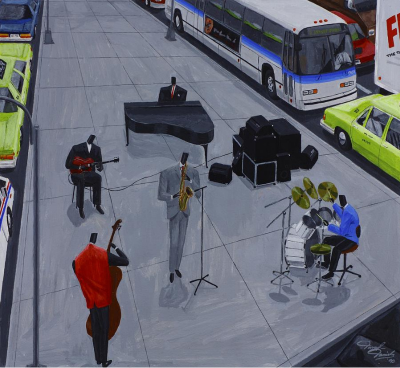
“Traffic Jam,” by Darryl Daniels
.
.
Jazz Me
Call to me.
Use your wiles,
to get me in the mood,
to focus on you.
Remind me of better times,
of the sweaty optimism,
the closeness,
that two can share.
Sing your song,
Charm me with your smile,
Jazz me.
.
by Freddington
.
___
.
Jazz With You: A Dizain
Blow the horn, push the keys, bang the big drum
Sing the words that renew a weary heart
Choose a sweet melody that makes me hum
And demonstrates a mastery of art
For soon the evening’s fun will surely start
Thump the bass, strum those chords, make that sound
Excite my ears with those tones, big and round
The music that you play for me feels right
No greater joy then this is to be found
Then jazz with you on a Saturday night
.
by Joel Jacob Todd, Jr.
.
___
.
Delta Blues
Guitar sings soul in roadside juke joints,
Harmonica wails pain away—
Blues ooze, cake-walk out of doors—
Strings sing under callused finger-tips of Son;
Muddy wails waters of tears
In a Rainey night in Greenville,
As eternal as the flow of the River to the Gulf.
Jazz started right here,
Slapping its feet on
The Mississippi Mud.
And then it moved north
Through St. Louis
And ended up
In Chicago.
Yes, it’s a long way
From the Delta
To Chicago.
.
by Emory Jones
.
___
.
An Altered Entertainment
The jazz orchestra is silent upon the stage,
the promise of music stalks the quiet.
Lights dim, musicians thin to a silhouette
though the radiance of their instruments,
the shining abundance of gold and silver,
remains undiminished.
The resolve of their leader
no longer labors to unleash timbres
upon the strategically placed audience,
an exciting, acoustical voyage
beyond the shores of dilemma,
beyond the hills of obligations
and mountains of financial debt,
beyond the talk of terror
and the looming threat of assault,
out toward an audible ocean,
riding the bareness of transparent waves,
where the music tempts listeners
to float upon its resonance
and grasp the progressing chords
and improvisatory
life boats of aesthetic intervention
before they dissolve.
Again and again jazz colors
resound to displace redundant contemplation
until the final cadence stills all sound.
The audience, hushed and stunned,
erupts into an appreciative applause,
lingering at the table of the feast
replete with distraction and fulfillment.
Though they are distanced
and socially set, they linger around the stage,
expressing appreciation with masked cheers.
Years of repetitive obligation
await beyond the concert hall doors,
but they bask in the gift of sound
before it modulates back to reality.
.
by Michael Keshigian
.
___
.
Miles Ahead
the ocean lies, as i walk
pretending you are with me
and this moment is bluer
than any dream i could have
a moment not even a trumpet
could capture
you hide your true self, hiding behind
glasses, i never knew you
in tones of night, miles’ horn
dressed you
in the light, i undress
you
you are a poetry of blues and green
i knew one day, you would get the
better of me
or so it seems
but i spend the day with you
undercover, under an umbrella
no pretenses, just
a kiss from you
and a silent way, leads me
to an everlasting
peace
even if it’s only a dream
.
by Erren Kelly
.
___
.
Lincoln Center
…………-for Mike and Catherine
Nearly year’s end, and I return to Manhattan,
This time with my brother and his young wife
To hear Monk—All Monk—No chaser,
As late November windchill buffets passers-by at
Columbus Circle.
Shops are gowned in holiday attire.
I wonder what Monk would say of the madness—
more mechanized than when he
Wandered the blocks near the glowing hall,
tapping rhythms for Nellie at night.
Now, a ghost of Thelonious, speaking through his son;
not lecturing the over-dressed;
the monied crowds, but simple tales of a father; a world legend.
.
by Robert Milby
.
___
.
Happy Birthday, Finally
……………..“For My Seventy-Fourth”
……………..“June 6, 2021.”
it still seems
……………..amazing to me
I try to play
……………..the trumpet everyday
and can still make it
……………..to high “c.”
*****
awhile back
……………..I had my old horn
professionally cleaned
……………..& worked on.
it’s so good to play on it
……………..looking forward.
it seems now there is
……………..no more old arthritis in the slides
and the sticking values
……………..are all fixed.
*****
I now feel I still have
……………..some more notes to play!
and feel, also for sure
……………..now I have
just a few more poems
……………..to play & sing out high, like high “c.”
.
Postscript: A very sincere birthday wish. My hope, is a wish for a lot
of people, who survived the virus era. Those that made it both mentally and physically. And now the wish is, they all feel a lot better, finally!
.
by Alan Yount
.
.
“They Didn’t Believe Me” is a 1964 recording by the Oscar Peterson trio (Ray Brown on bass and Ed Thigpen on drums), with Clark Terry on trumpet
.
.
I Sing The Remembers
let me sing
to you
warm evening
spirituals,
while bugs buzz
faded yellow lights
like ghost eyes
in solid dark,
breathing the
fever of warmth
where youth
jolts with the
pain of love
running tears
through the soul,
speaking pain
into jazz
on the tracks
of my bass
with cold and hot
heating my fingers
spilling out a story
as I cry the
spiritual alive
singing the
remembers
by the river
that knows my
name
.
by Roger Singer
.
___
.
Misbehavin’
On the day you were born,
Louis Armstrong appeared on the cover of Life Magazine.
Those cheeks no longer stuffed with pennies he’d squirreled away,
hiding his earnings from the big boys who wanted to confiscate his coins
from singing on the streets of New Orleans.
He sang his full-throated tunes in a quartet
on those NOLA street corners.
Saved those tips, rattling around between teeth and gums,
delivered coal and sold newspapers, performed in honky tonks,
all to put that first coronet in his hands.
One night he fired a pistol in the street to celebrate New Year’s Eve.
Then, for years, he floated on Mississippi River boats
from St Louis to New Orleans,
dangling notes into the river, musical ripples
that jitterbugged like stones skipping the water.
And I wonder if, like you,
Louis devoured beignets at the Café du Monde.
Or if he sipped smoky absinthe at Pirate’s Alley.
Or if he wandered through the stone markers
at St Louis Cemetery No 1, making rubbings of the names.
And so on this, your half century of living,
I wish for you unencumbered music that swings and sways,
a dreamland café where your mind swirls like smoke,
a place where misbehavin’ undulates to candlelight long after midnight,
and a big spoon of a life, devouring this wonderful world.
.
by Marianne Peel
.
___
.
Intuition, A Motion Picture
if not meant for someone else
it must be for my own beguilement
my vicarious pleasure
protected as she is
walking away in the damp chill
beret topped & broad-coat wrapped
toward a downtown destination
crossing against the light
…………….passing a corner lot
…………………………vacant
but for scattered rubbish
& an older Buick on blocks
singing “My Funny Valentine”
with a cashmere voice
plaintive as an unknown echo
.
by Terrance Underwood
.
___
.
Marooned Bells
Marooned on a couch brown raft -rocking lle-de-France
Sullen blackboard jazz blowin from across the navy N’Awleans seas
Slo-mo angels doing somersaults on my torn red curtain reverie
in these broken Halloween bones and mask
I rummage through the ashes that crashed me into
this pink, new golden face dawn..
floating past jagged-edged icicles into the night melting
chocolate Clark Terry’s “They Didn’t Believe Me.”
Love lost is something we can never afford
head stuck on a starboard mast
crashing through storm waves painted in dead dreams
And feeling that familiar frost-bitten regret again-
that we never consummated the close quarters of then,
what are regrets other than dead sea gulls floating in a ghost soup sea
.
by Michael Amitin
.
___
.
Watts Mosaic
………………In Memory of Charles Mingus
Charles teases rhythm from his double bass
as Sam works on his spires beside the tracks.
McNeely carries in a tenor sax
and gives Sam stones to decorate the place,
small grace notes for his stunning visual tricks.
Esther and Johnny bring a voice and snare
to take their chairs and with the others share
her throatiness, his virtuoso sticks;
As Sam creates with glass some razzmatazz,
his spire, a clarinet in silhouette,
echoes the horn that’s blown by cool Collette.
Assembled and inspired by Charlie’s strings,
their musical mosaic swings and sings
in sound and stone as R&B and Jazz!
.
………..First published in Pivot, later in the poet’s book Ghost Trees (Kelsay Books)
……….Note: All the musicians named here would gather and play at Sam Rodia’s Towers in Watts, California.
.
by Ralph LaRosa
.
___
.
ecstatic arcs
…………….after Anthony Braxton
when the sun breaks down, I gather
hollow things: hot water bottle
reciprocates a torso, this phantom
of prepared pianos
voice of bird coming through
the centuries, help point
this foam-bound vessel home
so I can once again
nurse the dying tamarisk
and hear at last its gasps for air
*
love lets loose the volcanic cement
of my aqueduct, all gilt and feathers
by the shore, another shore
only shallower
“a body … that simultaneously
acknowledges, expands, and explodes”
don’t forget: Braxton’s blues
broke all the rules, too
*
do you know today’s
time signature?
closer still to the soil
we lacerate, puncture, dye
in light’s perfect perforation
a berry sweet and sacred
to birds, but bitter and lethal
to you and I and I
.
by Anthony Santulli
.
.
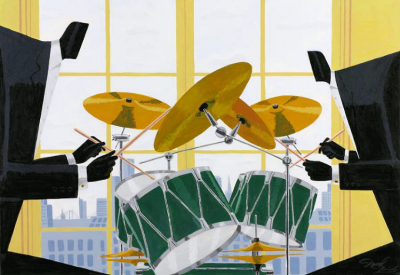
“Upbeat,” by Darryl Daniels
.
.
Bird Flight
……………for Phil Schapp
When I lived in or near New York City, the 80’s, the 90’s
…Phil Schapp on KCR gave us Bird Flight every morning, drive-time to work
Nobody went deeper into alternate takes, chord changes, various personnel; …not only Miles & Dizzy, but Tommy Potter, Duke Jordan, Al Haig [piano, not Reagan’s]
Max was still alive then, in Brooklyn; every morning Phil would call …“’Morning, Max,” daily reminding us of our ancestors, of the many who came before
Phil would interview old guys, “1937 you played at the XYZ club in Chicago, …with ABC,” and the player would say, “I think I remember that; we got paid $$$ for the week”
But the best was when he just let Bird fly, putting the music into the context of his life:
…Cymbal thrown in Kansas City
…Meeting Dizzy in McShann’s
…Chord changes on Cherokee
…Birth of bebop, Dizzy, Monk & Judge, the rooftops in Harlem
…Moldy figs vs. be-boppers
…“Relaxin’ at Camarillo”
…Charlie Chan at Massey Hall
…Even his alto sweetened with strings
The home he died in now has a plaque, Avenue B. And the City gives
…the Charlie Parker Jazz Festival, Tompkins Square Park, the heat of August
As voices like Phil’s, & Schwartz’s, & now-old radio guys keep all that fine …music alive Jazz now only a commercial niche; frantic bebop still swings, even on the radio
.
by Phil Linz
.
___
.
Broadway and 52nd St. midnight jazz club 1950
sipping our drinks as we wait in the cloud of smoke
we are too excited and too loud
out of the darkness on stage
a haunting sax calls to us
then the tenor player swans out of the darkness
the prophet of sound
will speak to us all
as the lights come up and the applause comes alive
we see the guys in the band smiling
ready to go
we applaud wildly
press in as close as we can to the musicians
the quintet has formed a circle
competing with each other
fiery notes flying everywhere
at the end of a wild set
under the skidding squeal of the silvery trumpet
i hear the kind heart of the throbbing bass
insisting that it’s time for the players to calm down
keep accurate time
and
honour the melody
in a shifting jigsaw sound puzzle
powered by complexity
chaos and coherence conjoin
the world has come aright
under the power of jazz
.
by Paul Brown
.
___
.
Milwaukee, Sometime In The ‘80s
Jazz on the long downslide:
Cicero’s, Jazz Estate, hanging on by a note.
Alfie’s closed long since, but Red Mill East
still bringing in the likes of Cleo Laine.
We’re jazzed.
Arrive early. Parking lot sure to be jammed.
Amazingly, we’re the first. Our reserved table—
the least expensive— is along the back wall
of the dark, nearly deserted club.
Fifteen, maybe twenty people saunter in
right before the show. An usher appears.
Would we mind moving up closer,
maybe . . . he points to a table
inches from stage center.
Would we mind?
Our applause echoes in the room as—
Dankworth on piano—
Cleo sings,
from growling blues to swinging scat,
for us alone.
Our many trips to New Orleans—
all that jazz— but never a concert like Cleo’s
in our own home town.
.
by CJ Muchhala
,
___
.
Piano Echoes
We stream music and view YouTube.
Outgrew our stereos and CDs.
They had tune-smiths at their pianos
playing rollicking sounds.
Music filled the alleys of New York’s West 28th Street.
Father of the Blues J. C. Handy and Scott Joplin wrote
catchy songs there in the early 1900s.
Ragtime and jazz poured from saloons and halls.
Where “In the Good Old Summertime”
and “Give My Regards to Broadway” were born.
A universal language took root.
Walls to show biz success fell.
America’s sheet music trade thrived.
When in a good mood, my late father used to sing around the house.
He’d belt out, “Hello! Ma Baby,” an old song to a young girl
who loved rock music, who knew little of Tin Pan Alley’s past splendor
.
by Amy Barone
.
___
.
The Man With the Horn
Scene: A Chicago nightclub-1927
I have often had this mysterious dream.
Had it since way back, when I was a teen.
I dream there was this most talented man
Who sang the blues and jazz with his band,
And played the most beautiful trumpet on the side.
Could have been since the day I was born,
I dreamed of this man and his horn,
To serenade me, make me smile and cry with his songs.
And tonight, there he was,
Trying to move me, and oh how it does.
Now I ask you, could that be so wrong?
The people came from far and wide,
To hear him sing, to make his trumpet cry,
But in my mind, he performed only for me.
He was older than I, but no matter his age,
Because I knew, when he was up on that stage,
We were perfectly matched, for an eternity.
I know what I am, and I really don’t mind.
To put it nicely, I’m the bargaining kind,
A woman who makes a living on her back.
I’m not ashamed of my honest confession.
Some call it the oldest profession.
Even Jesus found the time to put one on the right track.
Some other women say I’m sleazy,
And some lonely men say I’m easy.
Just say hello, and you’ve got yourself a date.
Some guys are rough, and I don’t mind,
But I prefer the ones who are simply kind.
They open my door, and they are never late.
I’m hoping to meet this man with his horn.
He’s all that I dreamed of, since I was born,
And just maybe, things will finally go my way.
But if it ain’t right, I’ll still come back every night,
To listen to this man’s haunting melodies.
I’ll find me another man,
A kind and gentle man,
And maybe I’ll give him my heart with the key.
He’ll be heaven sent, and just for me he’ll be meant,
And finally, things will be right for me.
.
by T. W. Parrish
.
.
Miles Davis’ 1954 Blue Note recording of Rodgers and Hart’s “It Never Entered My Mind” features Horace Silver (pian0), Percy Heath (bass), and Art Blakey (drums)
.
.
Blue
Hey Blue, you ain’t done yet.
You still got the magic.
Your eyes that so soft beautiful,
and your passion still falls like rain, Blue,
like rain
warm as the kiss of Heaven.
Your grace, your style
stand me to the sun’s red shine
take over to carry my day’s blue anchor
heavy to the river,
repeating the phrase, I can and I will
until even I in my whitewash white
believe it, can feel it.
With the bell-voice of your horn
open like a mouth
it celebrates the gold inside us all, Blue.
And when you play, I lean in and listen
the same way the sun tilts it’s haloed head
and leans in and listens,
‘cause God says so and there’s lessons to be learned.
Play that again, Blue.
Play like the wind’s got your tail.
Play it tight as a virgin’s kiss.
Play it so even the non-believers come ‘round to believing.
Play it Blue, like your dead mama is calling,
like the kitchen’s on fire,
like the sun’s goin’ down for the last time
and its takin’ us all with it.
.
by Bob Kokan
.
___
.
time won’t wait
i want to find grace in
your born-again soul, in
the art of forgiveness of
the hurt that you caused,
for in your own words:
you’re not getting any younger,
and neither are the salsa bands
on the CD’s you collected, for
rides to school and work and back
and rare mini-vacations
Pacheco’s Fania All-Stars:
Palmieri, Puente, Cruz,
Lavoe and Frankie Ruiz
both taken much too soon
the never ending mixes
of classic 80s freestyle
the likes of Lisa Lisa,
Noel, and TKA,
the information society
exclusive to us then
has followed me
beyond my youth,
taking on some form
in almost all that i do
you’d joke about how
you wanted to be buried
in a mausoleum of your
bootlegs and collectibles
but you’ve since purged them
away for a whole life anew,
if mami has moved on,
then why can’t i be thankful
and share the love you gave me
before time steals that away too?
.
by Brian Alvarado
.
___
.
Little Things Mean A Lot
Slow and steady,
the old turntable waltzed.
Her favorite chanteuse
sang “Little Things Mean a Lot.”
She never wanted diamonds or pearls.
She liked it when
he blew her a kiss or touched her hair.
Little things meant a lot—
a walk in a park, a love song at night,
a glass of California wine.
She would smile at dogs, feed the stray cats,
let the summer rain soak her to the skin.
Slow and steady,
the old turntable waltzed.
Her favorite chanteuse
sang “Little Things Mean a Lot.”
But she was gone,
and his grief had no place to go.
Her cat kept time with the music,
purring as she rubbed against him.
He blew her a kiss, whispered,
“Kitty, come to Daddy.”
The summer rain
danced without end.
.
……previously published in A Gathering of the Tribes, Issue 15, Sex, Death, Religion, 2018
.
by Patricia Carragon
.
___
.
Key of C
“You know what you need?”
she inquires with a grin
“an affair with a poet
of heroic proportion.”
…………..Behind horn rim he cogitates
…………..the costs or merits of this state.
“What’s in it for you,”
she cunningly sighs
“we wordsmiths do serious
research from dais.”
…………..Not one of those to lose his pride
…………..he muses as to coincide
…………..her wondering with a trumpet ride.
Might could call it plagiarize
what Alberta Hunter sang.
Believe her, I’m inclined,
(though it ought to be reversed)
“a good man’s hard to find.”
…………..She’s open for a thrill
…………..He arpeggiates a trill,
…………..commits for good or ill
…………..to horn plus poet skill
…………..they’ll rhapsodize until
…………..rare harmonies distill.
.
by Catherine Lee
.
……….First published within Lee’s poetry feature in Northampton Poetry Review, Issue 5, “Music,” July 11, 2020, pp. 63-74.
.
___
.
Our Last Date
Off the main-line,
down a dark alley,
basement club,
jazz’s stark phonetics,
fat guy on sax,
first time I ever saw
a face inflate like
a helium balloon.
I was with Suze
……………but just,
thighs together
but hands barely touching.
A night with no oxygen,
with nothing I would change,
a can-you-top-this passion
a wanting leading to a deliverance
with its own rapturous soundtrack.
……………Aah, the dark ages,
……………as bright as I remember,
……………boiled down, broken up,
……………loving each other
……………but letting go so hard, so fierce,
……………on a heat-stained virile note.
And Suze,
sad to say,
had so very little to do with it.
.
by John Grey
.
___
.
what autumn can do
in the nearly empty club in Manhattan
Teddi King sang Autumn in New York so well
the clarinet player stopped
and left discretely by the emergency exit
a passing song sparrow slipped in through an open window
and sang harmony with Teddi’s soft silver voice
the handsome prince charming at the front table
insisted she sing Autumn in New York one more time
but she sang a jazzy version of “Somehow I Never Could Believe”
at the break the suave gentleman said
please join me for a drink
as she would learn
he wasn’t an oily sycophant
he had truly fallen in love with her
and the romance lasted
till Indian Summer was almost over
.
by Paul Brown
.
___
.
Back at the Blackhawk
The Hal Leonard Real Little Ultimate Jazz Fake Book
includes over 625 songs compiled by Dr. Harry Wong who
has impeccable credentials in the jazz world.
Over the years, I’ve added now-fading yellow Post-it notes
to many pages for reasons now forgotten:
“Button Up Your Overcoat,” “I Could Write a Book,”
“It Never Entered My Mind,” along with five others including
“Like Someone in Love,” a personal favorite,
especially the Bill Evans 1962 solo recording.
Dr. Wong can’t be faulted for a single selection of song,
performer or composer but, given the opportunity,
I would have made some different choices.
I would have included Susannah McCorkle’s terrific vocal on
“I Thought About You,” the Johnny Mercer/Jimmy Van Heusen tune
she recorded including the verse
(almost no one covers the verse anymore) a few years before
she gave up on jazz and life, left them on the other side of
the window of her 16th floor apartment on the Upper West Side.
And I would have noted the nobody ever played
“Doxy” better than Cal Tjader on the original 1959
Concert by the Sea album recorded live at Monterey with
Paul Horn and Mongo Santamaria.
All I have to do is look at my old blue viny LP in the jacket with the
photo of the wild California coast
and I’m back at the Blackhawk with you, young again,
sitting at the bar, listening to Cal,
and very much like someone in love.
.
by Molly Larson Cook
.
.
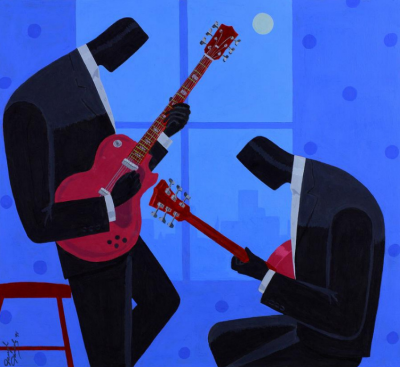
“Night Rhythms,” by Darryl Daniels
.
.
Miles Davis Plays “Blue In Green”
His exploring
…………………..pensive mood
suits this snowy dusk
the sound of the river cascading
over icy rocks …floes
breaking free.
His trumpet
………………sings a melody
lilting… dancing … falling
breaking into low spaces
poignant with loss
……………………………….or longing.
It seems he mirrors the river
or the river mimics his modal-
making improvisation.
You’d like rum splashed
over rocks… a taste of Cuba
the rocking of a sloop
days lost to sun and sailing
body lithe and strong … not
this profound awareness
of dissonance within
making improvisation
impossible.
Miles had his demons too.
Listen… you can hear them
waking just below
the surface.
The river’s obsessive race
to the sea continues.
The cd spins.
Your body relaxes
under morphine.
I listen to the melody
feel the pulsing disharmony
the silken colour of wounds.
.
by Kathryn MacDonald
.
___
.
chet baker’s return
lighted juke box music,
in night club no time
pockets of muffled chatter
scatter about low-hung basement
a silent figure in navy vee-neck,
beat-up jeans, slippered feet,
zeroes in from exile,
appears on raised space
a thin, hurt frame contracts
into bentwood chair,
crouches round
Eucharistic horn…
tongue wets lips…
fingers pump valves…
ba-da-dup, ba-da-dup
ba-da-dup, ba-da-dup
right hand sets mic
left foot taps tempo…
biddle-dee-doomp, biddle-dee-doomp
biddle-dee-doomp, biddle-dee-doomp
penitential eyes
glance to glass on piano top,
meditate private quiet
audience hushed
jaw moves, damaged chops
vibrate old tunes
jotted on new sheets
jazz lovers wait
cash ring echoes,
room dims,
juke box groans,
goes dark
glasses clink, speak
in whiskey whispers
hush within hush
trumpet rests in still life,
till it summons a breath
and then the room is sound,
only sound…
ancient, ragged edged –
pure of what it was way back when…
when he didn’t know
he’d have to suffer so much
to remain the same.
.
by Paul Austin
.
___
.
Wes Montgomery Played
Wes Montgomery played guitar
…..without a pick,
his thumb chose
…..the one
at the Turf bar
…..with a single
note that ran
…..fresh with a form
unique.
…..His solo compressed
chords moved
…..along future passages
with a lively melody
…..tight with action,
his self-taught fingers
…..high on natural style.
.
by Byron Beynon
.
___
.
An Elegy For Charlie Parker
I can see you sitting outside the Reno
where the Mob’s tight hold makes dollars spin.
You are scuffling the dust, then homing in
whenever Lester launches his solo.
Or I see you breathe at the music’s source
through a taped and battered alto. Through scale
after scale you soar, egotistical,
obsessive, chasing sounds no ears endorse.
Later on the hipsters hailed you –
Benedetti and a crew of fanatics
who, trailing wires in cellar bars, left mics
in place that hoarded every note you blew.
You had known from the start you’d never win,
even though your style became a language
for all. And Lester also shared that rage,
that anger that sticks like pigment in skin.
.
by David Cooke
.
___
.
Sonny Rollins’s Bridge*
It wasn’t his bridge, of course.
It wasn’t even his city, and it certainly wasn’t
his world. It’s your world, jazz music says,
I’m just living in it. And the world’s a workshop.
Sonny was different, though. Even for one
we’d call young gifted & black without being
bromidic. Sonny heard so much but mostly
only listened to himself, waiting and creating
his own kind of way, expressing everything.
How do we describe the kind of man already
in rarified air deciding he wasn’t high enough
(having already eschewed the artificial ecstasy
that ruins veins and soils brains, Body & Soul)?
This colossus, keeping his own council, split
his apartment to set up shop in the crow’s nest
of the Williamsburg Bridge, perhaps the one
place aside from the Arctic Circle where no one
could see or hear history being picked apart
like a carcass, and then reassembled in real time.
Three years of this. Almost a thousand days
while the world spun, the cash registers rung,
and so many pretenders to the throne ascended
for lack of better options. Sun turned to snow
and dawn turned to dark and there were still
all those sounds: a style being tweaked, a gift
being refined, an experiment being improvised.
The quest for vision, it’s said, will make
otherwise steady men see outlandish sights:
as they deprive themselves of human fuel
they become something at once less & more
than a vessel; the spirits speak to and through
them and once that barrier is broken, one sees
oneself changed, then begins changing the world.
.
(*In 1959, feeling pressured by his unexpected rise to fame, Rollins took a three-year hiatus to focus on perfecting his craft. A resident of the Lower East Side of Manhattan with no private space to play, he took his saxophone up to the Williamsburg Bridge to practice alone.)
.
…..originally published in Burningworld Literary Journal, Jan. 2021
.
by Sean Murphy
.
___
.
Thanks To Donald Byrd
One hot summer evening I met a Knight
He asked if I wanted to go with him
To Ethiopia, yes was my reply
Closing my eyes, I started the ride
The sweat dripped from my brow
I was deep into a groove now
My body swaying to the beat
The moving of my unclad feet
Visions of Menelik I, child of
King Solomon and Queen of Sheba
I was high without a glass of wine
Or a toke of primo reefer
The Knight was deep in my bones
I was enchanted, no longer alone
Tossing my hair like a lion’s mane
hearing Haile Selassie’s name
Sliding across desert sand
Bopping in Ethiopian land
Donald Byrd, best music I heard
that summer night, it was tight
.
by Aurora M. Lewis
.
.
“Old Folks” is from Grant Green’s 1961 Blue Note album Grantstand, and features Green (guitar), Brother Jack McDuff (organ), Al Harewood (drums) and Ben Tucker (bass)
.
.
My Composer Brain Is A Laundromat
In my laundromat brain, notes, rests,
bass and treble clefs brazenly flirt.
Spin-dizzy time signatures experiment
with odd meters, sharps flatten, chords
get tangled in knots. A little fabric softener
and out tumbles smooth jazz.
Blacks and blues, slave work songs,
field hollers, gospel and hip hop
sometimes slip into the bleachy
white load trying to pass. Melodies
ignore bar lines, fall in love with
harmonies and abandon their tempos.
In the dryer, questionable intonation collects
in the lint filter, static crackles like castanets,
lovers cuddle after their wet night of passion.
Some I fold some into standard forms.
Some I toss into the warm air, listen as they
as they craft themselves into fresh tunes.
.
by Jean Fineberg
.
___
.
From A Window, Beautiful Feathers
across to the lake
warm Gulf breeze
whispers up still water
to drift white-capped
silver in this sunlight
stilted white Egrets roam
the foreground shoreline
seeking stalking probing
like down bass players layin’
a bottom harmony
deeply attractive to Egyptian geese
…………………………………..a lone Ibis
Grant Green
& Ike Quebec
who wile away
a chord & melody overlay
Blue and Sentimental
& all appears so stylish
………………….nearly fashionable
basking in a shifting spotlight
silver blue water a background
underpaint for this quiet canvas
beheld by an untrained eye
.
by Terrance Underwood
.
___
.
Speed Queen/With Kinsley
Between midnight and morning
we shoulder our way out of
this city of poetry and the Blues,
Jazz city — Ramsey Lewis
pounding out Les Fleurs —
and speed north on The Kennedy.
Bucktown, Irving Park, Waukegan —
once “a French trading post
of minor importance” and now home to
the Jack Benny Middle School —
ninety-four, lined with billboards
and farms growing, not corn
but storage tanks.
Halfway home, we cross into Wisconsin,
through euphonious Kenosha, Racine,
until Milwaukee raises its finger on the lake.
On the right, the forgotten Kinnickinnic,
reflecting not stars but industries’ ochre runoff.
We ride in 5/4 time
with Morello’s rolling beat
driving us home.
2 AM and the line on 12th St
wraps around Speed Queen.
Night shift workers, ladies
of the night, hipsters, jivin’,
finger-snappin’, dancin’
cool moves along the sidewalk,
some, many, most hepped up
with the night, with the smell
of pot, of the secret sauce,
slabs of ribs, tips and wings,
pulled pork, catfish fryin’,
mixed greens boilin’,
and red beans and rice,
served up with a side
of Muddy Waters.
I don’t want to make
this moment eternal, but
somewhere in the ride,
somewhere in this night,
I know there is a poem.
.
by Russell Dupont
.
___
.
Coltrane On The Bowery
It wasn’t here but over there across
The street and down the road a bit along
The Bowery, the bums drifting along
With their alcohol hallucinations,
While Monk and Coltrane were inside the Five
Spot Café, the pianist and the sax
Player up there having a musical
Dialogue, deep as anything Plato
Or Socrates laid down in Dialogues
A few thousand years ago in Athens.
Monk and Trane made history up there on
That improvised stage, improvising life
And their music, spontaneous, alive
And in the moment, ineffable, real.
.
by M.G. Stephens
.
___
.
Jazz in Istanbul
Avant-garde skiffles – jazz with a degree
Starting off- a heavenly horn announces the venerated harp, going where no other can follow
A guitar plucks away until the banjo wonders, “Where do I come in?”
“You’re in-a-corner kind a’ guy. When no one’s looking, jump in” replies the black and white keys, racing up and down.
A trombone slides in. A violin reaches up so tip-top, he’s knocked
a star out of orbit.
French horns and a xylophone team up to form a liquid chorus,
heading towards piles of rugged rocks
“Careful, be oh-so carful!”
Bang, boom drums.
Oh-oh ……….! Tipping precariously towards the orchestra pit. Screams.
Splish-splash! Too late to turn back!
Hang on to those high notes. There’s cheers in the wings, and clapping so boisterous, it carries echoes.
.
by Susandale
.
___
.
Thus I Am Not Able To Enter Paradise
Today
where the rivers meet in Pittsburgh
in wonder
and barges ply the water like egrets
I pray
Lord I’m sorry for being my lazy self
for not learning the blues in all keys
like Lester Young said
then forgetting all that shit
and just playing—
like
a city forgets
who once thought coke ovens were beautiful
and testified as such
.
by John Stupp
.
___
.
The Guitarist Has Played For Hours
………………….(for Joseph Glaser)
No one is listening. The lasagna is too good,
the fat man soaked in burgundy is too loud,
there are too many jewels, too much perfume.
too many negotiations going on, yet the small
figure curved round the guitar
plays with delicacy and passion, humming
to himself, lightly tapping his foot, smiling
when Dowland, Tansman, or Rodrigo elegantly emerges.
A vine-wrapped arbor has grown round the small stage
and birds whistle an accompaniment. The space
floods with whirling shadows in antique dress. What better
refuge from life’s commerce, he thinks, than music?
.
by Michael L. Newell
.
.
_____
.
.
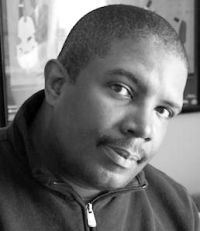
Darryl Daniels was born in Selma, Alabama in 1963 and lived equal parts of his upbringing in the Bronx borough of New York City and Alabama.
Largely self-taught, he was drawing from as early an age as he could remember on just about anything he could find. When he was seven years old, Darryl saw a print by the artist Norman Rockwell in one of his grandmother’s S&H Green Stamp catalogs. “I couldn’t believe that someone could draw people that well and decided to become as good at this as I could.”
While working as a graphic designer, Darryl was also searching to find his identity as an artist. His answer would come in the form of a growing admiration for jazz music and the jazz musicians he discovered while listening to the genre late at night during his college years. Darryl decided to combine his love for abstract, realist and figurative expression into a series of paintings beginning in 1990, which evolved into his Jazz series.
Some twenty-plus years later, works from and inspired by this series have appeared in television, commercial and film, on a half dozen CD covers, including Chick Corea’s Live In Montreux, several books on the history of jazz, a series of ties and scarves for Absolut Vodka, promotional material and billboards for events like the Syracuse Jazz Festival, cellphone covers and numerous poster and prints by several art publishing houses. Additionally, Darryl has also received awards from Print Magazine and the Southern Arts Foundation.
His original paintings are regularly in demand and are a part many collections around the world.
Click here to visit his website
.
.
___
.
.
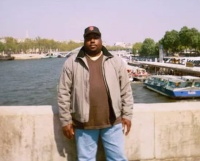
Erren Kelly is a two-time Pushcart nominated poet from Boston whose work has appeared in 300 publications (print and online), including Hiram Poetry Review, Mudfish, Poetry Magazine, Ceremony, Cacti Fur, Bitterzoet, Cactus Heart, Similar Peaks, Gloom Cupboard, .and .Poetry Salzburg.
.
.
___
.
.
photo by Donna Termini

David Dephy is a Georgian/American award-winning poet. The winner of the 2019 Spillwords Poetry Award, the finalist of the Adelaide Literary Awards 2019 for the category of Best Poem. He was named as A Literature Luminary by Bowery Poetry and The Incomparable Poet by Statorec. His works have been published and anthologized in USA, UK and all over the world by many literary magazines, journals and publishing houses. He lives in New York.
.
.
___
.
.
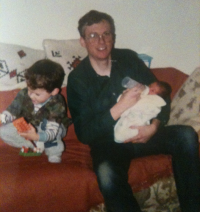
John Stupp’s third poetry collection Pawleys Island was published in 2017. His manuscript Summer Job won the 2017 Cathy Smith Bowers Poetry Prize and was published in August 2018. A chapbook entitled When Billy Conn Fought Fritzie Zivic was published by Red Flag Poetry in January, 2020. (From 1975-1985 he worked professionally as a mediocre jazz guitarist). He lives near Pittsburgh, Pennsylvania and can be reached via email at [email protected].
.
.
___
.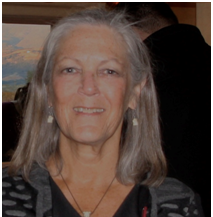
Judith Vaughn lives in Sonoma, California. She attended New York City College, John F. Kennedy University, and Dominican University with a focus in Psychology. Publications: First Literary East, an online literary publication; Oak Leaf News, a student publication at SRJC, Santa Rosa, CA; Jerry Jazz Musician: A Miles Davis Poetry Collection; and Train River Publishing, Poetry Anthology, Summer 2021. She is also a photographer.
Photo images: 500px.com/judithjudith1
https://judithjudith.tumblr.com
.
.
___
.
.
Anthony Ward chooses to write because he has no choice. He writes to get rid of himself and lay his thoughts to rest. He derives most of his inspiration from listening to jazz since it is often the mood which invokes him.
.
.
___
.
.
Michael L. Newell has had five books published in the past three years: Meditation of an Old Man Standing on a Bridge; Each Step a Discovery; Wandering; Diddley-Bop-She-Bop; Making My Peace. He currently lives in Florida.
.
.
___
.
.

Dr. Roger Singer was in private practice for 38 years in upstate New York. He has four children, Abigail, Caleb, Andrew and Philip and seven grandchildren. Dr. Singer has served on multiple committees for the American Chiropractic Association, lecturing at colleges in the United States, Canada and Australia, and has authored over fifty articles for his profession and served as a medical technician during the Vietnam era. Dr. Singer is the Poet Laureate of Old Lyme, Connecticut. He has had over 1,070 poems published on the Internet, magazines and in books and is a 2017 Pushcart Prize Award Nominee. He is also the President of the Shoreline Chapter of the Connecticut Poetry Society.
.
.
___
.
.

Patricia Carragon’s poem “Paris the Beautiful” won Poem of the Week from great weather for MEDIA. Her fiction piece “What Has to Happen Next” is nominated for Sundress Publications Annual Best of the Net Anthology. Her latest book from Poets Wear Prada is Meowku. Her debut novel, Angel Fire, was just released by Alien Buddha Press. Patricia hosts Brownstone Poets and is the editor-in-chief of its annual anthology. She lives in Brooklyn, NY. She can be reached via email at [email protected]
.
.
___
.
.

Social issues are a major focus of Milwaukee poet Phyllis Wax. Her poetry has appeared previously in Jerry Jazz Musician and in many other journals and anthologies online and in print. A Best of the Net and Pushcart Prize nominee, she has read in coffee houses, bars, libraries and on the radio. She can be reached via email at [email protected].
.
.
___
.
.
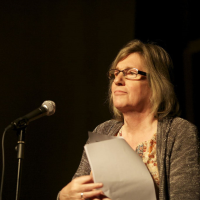
Isabel White has performed across the UK, at Shakespeare & Co in Paris and in Rotterdam. She was twice runner up in the BBC Radio 3 Proms Competitions; a finalist in nine others and poet-in-residence for organizations working with marginalized communities. With three full collections and a pamphlet under her belt, Isabel’s poetry has been widely published – in 18 books and journals to date. Isabel founded performance collective Alarms and Excursions in 2009, www.alarmsandexcursions.com
.
.
___
.
.
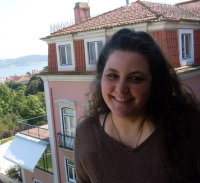
Millicent Borges Accardi has received fellowships from the National Endowment for the Arts (NEA), Fulbright, CantoMundo, California Arts Council, Barbara Deming “Money for Women,” and Fundação Luso-Americana (FLAD). Most recent poetry collection, Only More So (Salmon). IG and Twitter @TopangaHippie
.
.
.
___
.
.
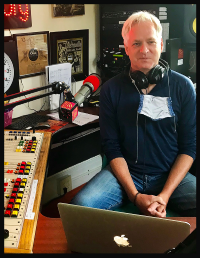
Sebastian Matthews is the author of a memoir, In My Father’s Footsteps, and two books of poetry, We Generous and Miracle Day. His hybrid collection of poetry and prose, Beginner’s Guide to a Head-on Collision, won the Independent Publishers Book Award’s silver medal. Matthews is also the author of the collage novel The Life & Times of American Crow and a memoir-in-essays, Beyond Repair: Living in a Fractured State. Learn more at sebastianmatthews.com
.
.
___
.
.
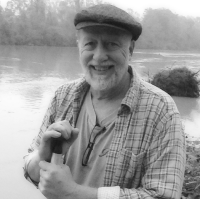
Ed Ruzicka, an occupational therapist, lives in Baton Rouge, LA where he and his wife, Renee, often sit on a patio that backs up to the sunset. Find Ed’s many takes on the rocky marriage between freedom and the American highway in his second book My Life in Cars. Ed’s poems have appeared in the Xavier Review, Rattle, and Canary as well as many other literary journals and anthologies.
More at: http://edrpoet.com/poems.html
.
.
___
.
.
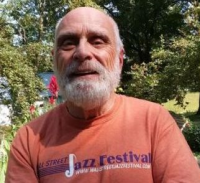
Daniel Brown has loved jazz (and music in general) ever since he delved into his parents’ 78 collection as a child. He is a retired special education teacher who began writing as a senior. He’s content to write with the sunrise each day and always appreciates being published in a journal or anthology. His first poetry collection Family Portraits in Verse is forthcoming. He can be reached at [email protected]
.
.
___
.
.

DH Jenkins worked as an associate professor of English/Speech for the Univ. of Maryland in Japan and Korea for many years. His jazz play, Ti Jean, about Jack Kerouac, has been staged in Tucson, AZ and in St. Joseph, MO. Thirteen of his poems are set to music in the film Call From a Distant Shore, a collaboration with musician/artist Bill Scholer, June 2020.
.
.
___
.
.
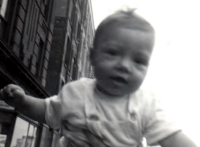
A 2016 Pushcart nominee, Mike Jurkovic’s poetry and musical criticism have appeared in over 500 magazines and periodicals worldwide with little reportable income. Full lengths include: American Mental, (Luchador Press 2020) Blue Fan Whirring (Nirala Press, 2018) President (Calling All Poets, New Paltz, NY). CD reviews appear online at All About Jazz, and Lightwood. He was and hopes to be again the Tuesday night host of Jazz Sanctuary, WOOC 105.3 FM, Troy, NY. He loves Emily most of all.
www.mikejurkovic.com
www.callingallpoets.net
.
.
___
.
.
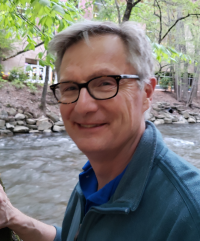
Barry Peters lives in Durham and teaches in Raleigh, NC. Publications include The American Journal of Poetry, Best New Poets, New Ohio Review, Poetry East, Rattle, and The Southampton Review.
.
.
___
.
.

.
Susandale’s poems and fiction are on WestWard Quarterly, Mad Swirl, Penman Review, The Voices Project, and Jerry Jazz Musician. In 2007, she won the grand prize for poetry from Oneswan. The Spaces Among Spaces from languageandculture.org has been on the Internet. Bending the Spaces of Time from Barometric Pressure is on the Internet now.
You can reach her by email at [email protected]
.
.
___
.
.
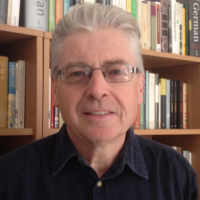
David Cooke’s latest collection of poetry, Sicilian Elephants, will be published by Two Rivers Press in November 2021. He is the founder of the UK-based online literary journal The High Window, which he founded in 2015, and which can be viewed by clicking here
,
,
___
.
.

Amy Barone’s latest poetry collection, We Became Summer, from New York Quarterly Books, was released in 2018. She wrote chapbooks Kamikaze Dance (Finishing Line Press) and Views from the Driveway (Foothills Publishing.) Barone belongs to the Poetry Society of America and the brevitas online poetry community. She lives in NYC.
.
.
___
.
.

Sean Howard is the author of five books of poetry, most recently Unrecovered: 9/11 Poems (Gaspereau Press, Canada, 2021). Sean’s poetry has been widely published in Canada, the US, UK, and elsewhere, and featured in The Best of the Best Canadian Poetry in English (Tightrope Books, 2017). Sean is adjunct professor of political science at Cape Breton University, and writes a monthly ‘War & Peace’ column for the Cape Breton Spectator. He can be reached at [email protected].
.
.
___
.
.

Antoinette F. Winstead is a poet, playwright, director, and actor living in San Antonio, Texas, where she’s a professor at Our Lady of the Lake University. Her poetry has appeared in several publications, including The Woman Inc., Texas Poetry Assignment, Voices de la Luna, Langdon Review, Texas Ballot Poetry, and The Poet Magazine. Her poem “JAZZ” received First Place for the 2020 Persimmon Prize. She is currently President of the Alamo Area Poets of Texas.
.
.
___
.
.
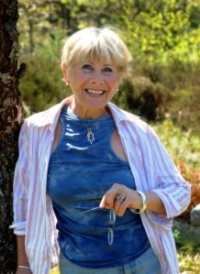
Arlene Corwin…Brooklyn born. Age 85. Harpist, pianist, singer. High School of Music & Art. Hofstra Univ. BA. 2 films (lead in one, composer in the other — see IMDb) original lead in “The Nervous Set, introducing “Spring Can Really Hang You Up the Most”. 19 published poetry books, yogin since the age of 20-something. Lives in Sweden. Jazz musician forever. Mother owned jazz club, The Turf with Slim Gaillard in the 50’s, Hempstead, Long Island. (See.Arlene Corwin. Poetry.com .for longer version.). See Youtube for Arlene and some good tunes.
.
.
___
.
.
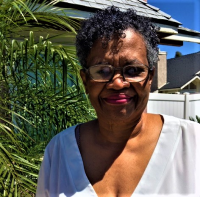
Aurora M. Lewis.is a retiree having worked in finance for 40 years. In her fifties, she received a Certificate in Creative Writing-General Studies, with Honors from UCLA. Aurora’s recent poems, short stories, and nonfiction have been accepted by The Literary Hatchet, Jerry Jazz Musician, The Blue Nib, Trembling in Fear, Jitter Press, Scary Snippets, Copperfield Review to name only a few.
.
.
___
.
.

Susie Gharib is a graduate of the University of Strathclyde with a Ph.D. in English on the work of D.H. Lawrence. Her poetry and fiction have appeared in Adelaide Literary Magazine, the Pennsylvania Literary Journal, Mad Swirl, Down in the Dirt, The Ink Pantry, Impspired Magazine, A New Ulster, Westward Quarterly, Miller’s Pond Poetry Magazine, The Opiate, Penwood review, Crossways, Amethyst Review, Synchronized Chaos, Pinyon Review, Leaves of Ink, Peacock Journal, The Blotter, and many others.
.
.
___
.
.
photo by Michael Chovan-Dalton
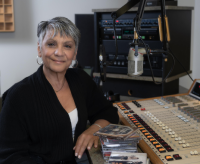
Gloria Krolak is the host of Good Vibes, the first and only broadcast radio program featuring the vibraphone. She was also Poetry Editor at Jersey Jazz, the journal of the New Jersey Jazz Society. She was on the board of the Junior Jazz Foundation on Hilton Head, South Carolina. Krolak co-produced the Jazz Vibes Showcase, featuring Joe Locke. In 2019 she created Jazz Lines, free verse built of jazz tune titles. See it at www.gloriajazz.com.
.
.
___
.
.
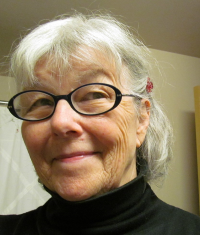
Molly Larson Cook is an award-winning Oregon writer, writing coach, and artist. In 2016, she received the first Steve Kowit Poetry Prize in a national competition. Molly was a Fellow at the Fishtrap Writers Conference in Oregon where she worked with poet Naomi Shihab Nye. Molly’s jazz novel, Listen, was published in a limited edition in 2003. Her “Colors of Jazz” paintings are at mollylarsoncookpaintings.wordpress.com. She can be reached at [email protected]
.
.
___
.
.
Freddington works as a shipper/receiver in Toronto, Canada, and has been a lifelong jazz fan ever since he was “corrupted” as a teenager by Charles Mingus’ “Wednesday Night Prayer Meeting.”
.
.
___
.
.

A native of Maryland’s eastern shore, Joel was educated at the University of Maryland Eastern Shore (B.S.) and Rowan University (M.M.). He is the organist and choir director at First Presbyterian Church in Ocean City, MD. He can be reached at [email protected]
.
.
___
.
.
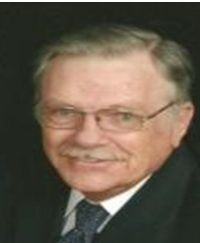
Dr. Emory D. Jones is a retired English teacher who has taught in high schools and various community colleges. He has four hundred and seventy-five credits including publication in such journals as Writer’s Digest, Free Xpressions Magazine, The Storyteller, Modern Poetry Quarterly Review, Gravel, Jerry Jazz Musician, The Pink Chameleon, and Encore: Journal of the NFSPS. He is retired and lives in Iuka, Mississippi.
.
.
___
.
.
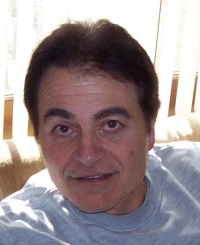
Michael Keshigian, from New Hampshire, had his fourteenth poetry collection, What To Do With Intangibles, released in January, 2020 by Cyberwit.net. He has been published in numerous national and international journals and has appeared as feature writer in twenty publications with 7 Pushcart Prize and 2 Best Of The Net nominations.
(michaelkeshigian.com)
.
.
___
.
.
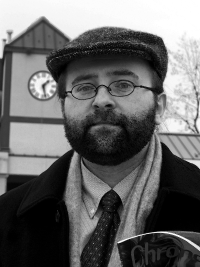
Robert Milby, of Florida, NY has been reading his poetry in public since March, 1995. He is the author of several chapbooks, books, and CDs of poetry, and served as Orange County, NY Poet Laureate from 2017 – 2019. He currently hosts four Hudson Valley, NY poetry readings series, and is a listed poet with Poets & Writers, Inc. NYC since 2005
.
.
___
.
.
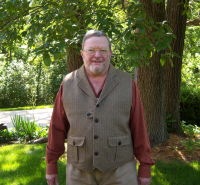
Alan Yount has published poetry for over 50 years. His poems have appeared in WestWard Quarterly (featured poet for summer, 2018). Big Scream, Spring: the Journal of the E.E. Cummings Society, and Waterways. He has been in three anthologies: Passionate Hearts, Sunflowers.and Locomotives: Songs for Allen Ginsburg. Alan was one of 31 poets, along with Gary Snyder and Lawrence Ferlinghetti. Also Chrysalis Reader. Alan plays trumpet and has led his own dance band.
.
.
___
.
.
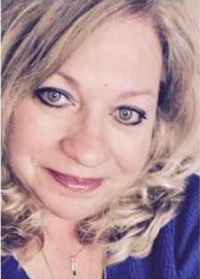
After having taught middle and high school English for 32 years, Marianne Peel is now nurturing her own creative spirit. She has spent three summers in Guizhou Province, teaching best practices to teachers in China. She received Fulbright-Hays Awards to Nepal (2003) and Turkey (2009). Marianne participated in Marge Piercy’s Juried Intensive Poetry Workshop (2016). Marianne’s poetry appears in Muddy River Poetry Review, Belle Reve Literary Journal, Jelly Bucket Journal, among others. Marianne is also a veteran musician, playing flute/sax and singing in various orchestras, bands, choirs, and jazz bands her whole life. She has a collection of poetry forthcoming from Shadelandhouse Modern Press.
.
.
___
.
.
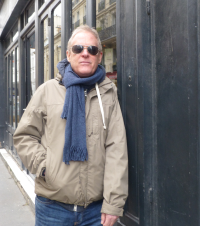
Poet and musician Michael D. Amitin, originally from California, traveled the roads of the American West before settling in Paris, France where he now lives. Recently named International Beat Poet Laureate 2020-2021, Amitin’s poems have been published in California Quarterly, Poetry Pacific, North of Oxford. Love Love Magazine. and others. A current collaboration with Parisian photographer Julie Peiffer has given rise to the “Riverlights” project, and can be found at Riverlights.art
.
.
___
.
.

Retired from professing English and American literature, Ralph La Rosa has published work on American writers, written for film, and now devotes himself to poetry, having published widely on the Internet, in print journals, in the chapbook Sonnet Stanzas, and in a full-length collection, Ghost Trees. My Miscellaneous Muse: Poem Pastiches & Whimsical Words was published in 2020.
.
.
___
.
.
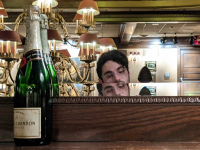
Anthony Santulli (he/they) is a New Jersey born writer and artist with a B.A. in Creative Writing and Italian from Susquehanna University. His recent work has appeared in Heavy Feather Review, The Vital Sparks, Beaver Magazine, minor literature[s], Impspired, and the tiny journal.
.
.
___
.
.

Phil Linz was born in Brooklyn, NY and has lived in several cities across the United States. He began writing poetry in 1971 and is founder and publisher of Fierce Grace Press, which specializes in chapbooks, believing in the concept of “Publishing Under the Radar.”.His new book, The Chapbooks: Collected Poems, is available on Amazon. Mr. Linz currently lives in Wilmington, DE; he may be reached at [email protected].
.
.
___
.
.
Paul Brown writes poetry and fiction in Belleville, Ontario. His novel Wolf Pack of the Winisk River, written in free verse, was published by Lobster Press, Montreal, in 2009.
.
.
___
.
.
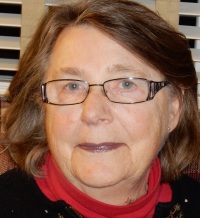
CJ Muchhala has absolutely no musical ability but a great deal of appreciation for and love of jazz and blues. She does, however, try to make music with words which have found their way into a number of journals, anthologies, and art/poetry exhibits.
.
.
___
.
.
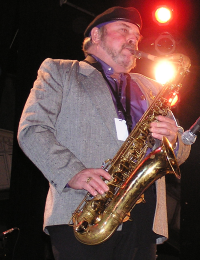
T.W. Parrish was formally educated in music performance. He writes original songs and performs equally well on trumpet, tenor sax, flute, and vocals. He’s performed in 47 states and abroad with some of the biggest names in entertainment. Originally from Fla., lived 16 years in Seattle, now retired in Lake of Ozarks, Missouri, playing occasionally in Kansas City. He has also written four books with painted illustrations. His favorite bands are Tower of Power and Poncho Sanchez, and his favorite music is Latin Jazz and Be Bop.
.
___
.
.
Robert Kokan has had poetry published in Bramble, and the ezines Yellow Mama and Breathe.
.
.
___
.
.
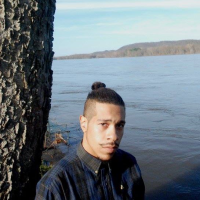
Brian Alvarado is a Puerto-Haitian Bronxite writer and occasional opera singer. His recent work is featured and/or forthcoming in Thimble, FERAL, Trouvaille, Cajun Mutt, and Ekphrastic, among others. He holds a BA in Creative Writing from Susquehanna University. https://brianalvarado.com/writing
.
.
___
.
.
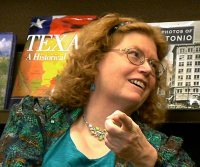
Catherine Lee is a widely published neo-Beat who reads solo and performs with improvising musicians “on poem” when she can. Joint gigs with her mentor, poet/hipster tedjoans in 1986-87 got her started on this journey. Lots of multimedia poetry, documentary videos, and radio specials are archived on Soundcloud and VIMEO. Lee’s artistic profile is located at GetCreativeSanAntonio and she can be reached at Jazz-Ovation-Inn.com.
.
.
___
.
.
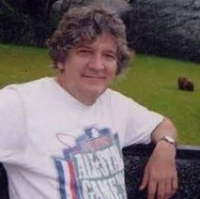
John Grey is an Australian poet, US resident, recently published in Penumbra, Poetry Salzburg Review and Hollins Critic. Latest books, Leaves On Pages and Memory Outside The Head are available through Amazon. Work upcoming in Lana Turner and Held.
.
.
___
.
.
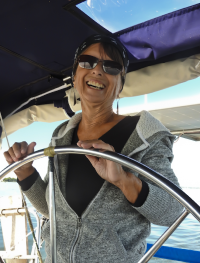
Kathryn MacDonald’s poems have appeared in literary journals in Canada, the U.S., Ireland, and England. Her poem “Duty / Deon” won Arc Award of Awesomeness (Arc Poetry Magazine, January 2021). “Seduction” was shortlisted for the Freefall Annual Poetry Contest edited by Gary Barwin. “Seduction” was published in Freefall (Fall 2020). She has poems forthcoming in The Beauty of Being Elsewhere, an anthology edited by John B. Lee.
Website: https://KathrynMacDonald.com
.
.
___
.
.
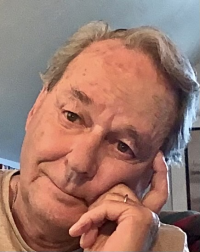
Paul Austin ’s collection Notes on Hard Times is published by Village Books Press. His work appears in This Land, Sugar Mule, Newport Review, Speak Your Mind, an anthology of Woody Guthrie Poets, Behind the Mask: Haiku in the Time of Covid-19 and elsewhere. A longtime jazz lover and actor, Austin writes for the theatre in essays, poetry, and plays; he’s acted and directed in New York and regional theatres and acted for film and television.
.
.
___
.
.
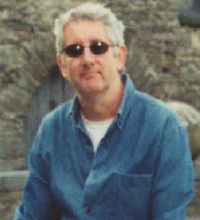
Byron Beynon coordinated Wales’ contribution to the anthology Fifty Strong (Heinemann). His poems and essays have featured in several publications including Agenda, The Independent, Wasafiri, The London Magazine, Poetry Ireland and the human rights anthology In Protest (University of London and Keats House Poets). He is the author of 11 collections of poetry including The Echoing Coastline (Agenda Editions). He lives in Swansea, Wales.
.
.
___
.
.
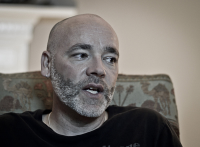
Sean Murphy has appeared on NPR’s “All Things Considered” as well as in USA Today, The New York Times, The Huffington Post, and AdAge. A long-time columnist for PopMatters, his work has also appeared in Salon, The Village Voice, Washington City Paper, The Good Men Project, Memoir Magazine, and others. He has twice been nominated for the Pushcart Prize, and his chapbook, The Blackened Blues, is now available from Finishing Line Press. To learn more, visit seanmurphy.net
.
.
___
.
.
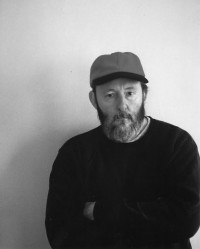
Russell Dupont is an artist and an author whose artwork is included in a number of public and private collections. He has published two novels, King & Train and Waiting for the Turk; two books of poetry; and two non-fiction chapbooks. His essay, “The Corner,” is included in the anthology Streets of Echoes. His work has been published in various newspapers and literary magazines. He was the founder & publisher of the literary magazine,.the albatross.
Visit his website by clicking here
.
.
___
.
.
M.G. Stephens is author of 24 books, including the just published hybrid work of prose and poetry, fact and fiction, about an out of work actor who lands the part of Hamlet, and is entitled History of Theatre or the Glass of Fashion(MadHat Press). In the autumn, Dispatches Editions will publish his nonfiction work, When Poetry Was the World, about downtown New York in the 1960s, including chapters on Thelonious Monk.
.
.
___
.
.
.
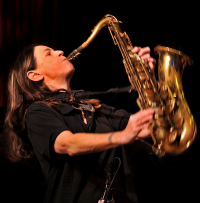
Jean Fineberg is an award-winning jazz saxophonist who has studied poetry with Kim Addonizio. Her poems have been published in Modern Poets Magazine, Soliloquies Anthology, Vita Brevis, Dove Tails, Uppagus, Literary Yard, FLARE: The Flagler Review, Riza Press, High Shelf Press, The Fibonacci Review, The Creativity Webzine, Quillkeepers Press, Superpresent Magazine, Lucky Jefferson, Unlost Journal, Kerning: A Space for words and Shot Glass Journal. Her first chapbook, A Mobius Path, will be available from Finishing Line Press in March, 2022.
.
.
_____
.
.
Click here to read a 2021 poetry collection — inspired by Miles Davis
Click here to read the winter 2021 collection of jazz poetry
Click here to read the autumn 2020 collection of jazz poetry
Click here to read “Under Quarantine — COVID-era poetry of Erren Kelly
.
Click here to learn how to submit poetry or short fiction
.
.
.
.
.
.






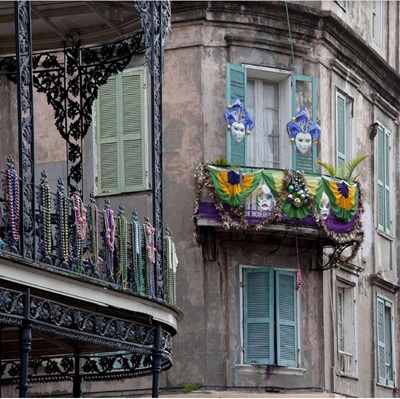
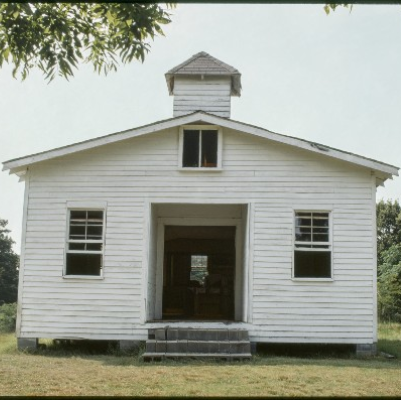



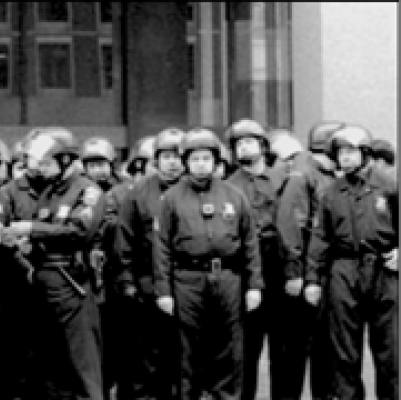
































What a collection! One can hardly (rather not at all) pick out one single poem as best. (Of course, we’re partial to those Corwin contributions)
One never ceases being impressed by Joe Maita and the time he must spend putting this entire site together. Roses to you Joe!? ?(bouquets of them)
Thanks, Arlene…I find inspiration in the music, its history, its contribution to America’s essence, and, most importantly, in the connection I feel to the community of contributors and readers. (It also helps being retired!) Joe
There are simply too many poems and too many poets for one old man to respond to everything, so I picked roughly twenty poems about which to make a comment or two. This collection in its entirety is impressive and somewhat overwhelming. There is, without a doubt, a lot of good poetry in this collection.
Erren Kelly: “A Shock to the System” — As always Mr. Kelly’s work creates its own music which is arresting while finding connections between music and life.
John Stupp: “Give Me That Old Time Religion” — Once again John Stupp makes the reader’s mind dance like a crowd that boogies to jazz on a dance floor.
Judith Vaughn: “The Dance” — A poem which is a lovely piece of oral jazz.
Phyllis Wax: “Nina Simone” — Nina Simone always sang the truth, and this poem reminds us of the truth Simone constantly brought to our attention.
Judith Vaughn: “Strange Fruit/Billie Holliday” — A poem of beauty, dream-state, imagination, and historical relevance.
Sebastian Matthews: “Giant Steps” — The title is perfect for the music and perfect for this poem about the music. This is a swinging lively poem about a jazz masterpiece.
Ed Ruzicka: “The Perfection of Breathing” — Ed, mi amigo, this is one of your best poems that I have read, and I have read a lot of Ed poems. A lovely merger of life and music.
DH Jenkins: “Watermelon Man” — The dedication to Herbie Hancock and Kenneth Patchen is a wonderful pairing (two of my favorite creative people). The poem sings and swings with the skill of the music being honored. Fine work.
Mike Jurkovic: “A Most Ill Fitting Suit” — What a comedic masterpiece in poetic form — swinging, singing, dancing humor. I can’t stop laughing as I write this.
Molly Larson Cook: “Jam Song” — A fun groove of a poem; rhythmically and lexically alive, alive, O — you could dance to this poetic music.
Freddington: “Jazz Me” — Freddington always gives this reader pleasure. This poem is no different. Brief, but alive.
Emory Jones: “Delta Blues” — A strong poem full of life and rhythm, and one which reminds the reader of the history of the blues.
Erren Kelly: “Miles Ahead” — Another fine work from Mr. Kelly.
Alan Yount: “Happy Birthday, Finally” — A poem which is both deeply personal and a well-developed and sustained conceit.
Marianne Peel: “Misbehavin” — A fine piece of musical history in very effective poetic form that is deeply personal and historically informative at the same time.
Terrance Underwood: “Intuition, A Motion Picture” — As usual, Mr. Underwood’s work is well-wrought and touching.
Phil Linz: “Bird Flight” — a touching and fascinating piece of jazz history in poetic form.
Paul Brown: ” Broadway and 52nd St. midnight jazz club 1950″ — Jazz brought alive both for the players and the audience. A poem which is both intellectual and lively.
CJ Muchhala: “Milwaukee, Sometime In The ’80s” — Well-described and lively picture of a jazz concert that touches on two of my favorite artists, Cleo Laine and John Dankworth.
John Stupp: “Thus I Am Not Able To Enter Paradise” — Another quiet, lovely, working class poem by John Stupp.